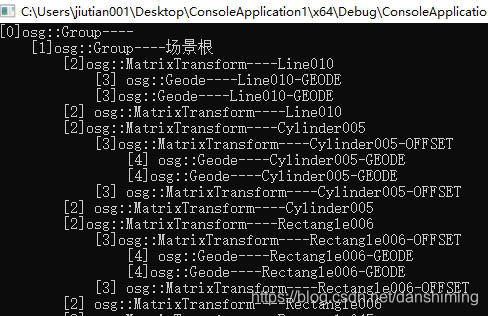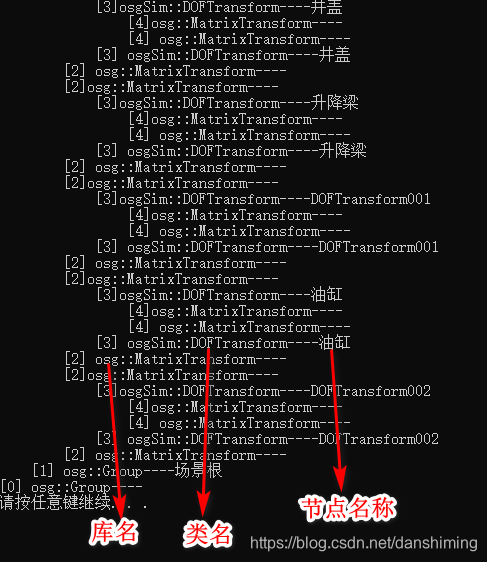- 「字节跳动」我如何在一个月顺利通过测开实习岗,拿到offer
柠檬软件测试
软件测试python软件测试功能测试测试工具selenium
是基本情况:某交211小硕,研二,目标岗位测开大概从四月初开始找实习,也赶上了一波校招热潮,不过大都败在了笔试上(T^T,感觉经验超重要的~),经过了一个多月,顺利拿到了offer,也积累了许多经验,回头看看,也会不禁感慨,从一开始面试官说“你基础知识太薄弱了,怎么也要提前准备一下”到最近百度、头条面试官说“嗯嗯看得出来,你的基础知识非常扎实”我觉得对我来说,就是对这一个多月的肯定。找实习的过程中
- Java基础 集合框架 队列架构 阻塞双端队列BlockingDeque架构
BlockingDequeBlockingDeque核心特性BlockingDeque核心方法唯一标准实现:LinkedBlockingDequeLinkedBlockingDeque构造方法LinkedBlockingDeque数据结构及管理逻辑LinkedBlockingDeque核心特性LinkedBlockingDeque核心操作方法逻辑LinkedBlockingDeque总结Linke
- 【Java面试】讲讲Redis的Cluster的分片机制
用心分享技术
Java面试题java面试redis
RedisCluster分片机制详解1.分片核心机制:哈希槽(HashSlot)RedisCluster采用虚拟哈希槽分区,将数据分散到16384个固定槽位(slot)上,每个主节点负责一部分槽位。键的槽位计算方式为:slot=CRC16(key)%16384#仅计算键中`{}`内的内容(如`user:{1000}`仅哈希`1000`)分片流程示例:集群有3个主节点,槽分配为:节点A:0-5460
- 【Java面试】RocketMQ的设计原理
用心分享技术
Java面试题java面试rocketmq
一、核心架构设计原因NameServer轻量级无状态问题:传统注册中心(如ZooKeeper)强一致性(CP)设计复杂,且在高并发场景下性能瓶颈明显。解决:NameServer采用无状态+最终一致性(AP),节点间不通信,仅通过Broker心跳(30s/次)更新路由,降低复杂度并提升吞吐量。容忍分钟级不一致(如Broker宕机需120s剔除),适合消息路由这种非强一致场景。Broker主从架构与文
- 深入浅出地讲解数据仓库建设中的业务建模方法论,包括实体联系视图模式、维度建模、星型模型、雪花模型、主题建模等
AI天才研究院
Python实战自然语言处理人工智能语言模型编程实践开发语言架构设计
作者:禅与计算机程序设计艺术1.简介数据分析师经历了从小处收集数据到中大型互联网公司的数据,面对海量数据和种类繁多的数据源头,如何快速准确地进行分析、建模、报表,成为众多数据分析师的共同心愿。而数据建模则是数据分析师的基础功课之一。数据建模作为数据分析师的一项关键技能和素质要求,其目标是将分析获得的数据转化成有意义的信息,并最终呈现给用户,能够帮助企业实现科学管理、优化决策、提升效益和服务能力。随
- Python爬虫网安-beautiful soup+示例
目录beautifulsoup:解析器:节点选择器:嵌套选择:关联选择:子节点:子孙节点:父节点:祖先节点:兄弟节点:上一个兄弟节点:下一个兄弟节点:后面所有的兄弟节点:前面所有的兄弟节点:方法选择器:CSS选择器:beautifulsoup:bs4用于解析htmlandxml文档解析器:html.parser、lxml解析器和XML的内置解析器文档遍历:跟xpath差不多,也是整理成树形结构搜索
- 欧盟AI法案、中国《生成式AI管理办法》规范数据隐私与算法歧视
DK_Allen
大模型人工智能算法
一、全球AI治理框架:双轨并行1.欧盟《AI法案》(2025全面生效)风险等级监管要求典型场景不可接受风险全面禁止社会评分系统、实时生物识别(公共场所)高风险强制注册+第三方评估+人工监督医疗诊断、关键基础设施管理有限风险透明度披露(AI生成内容标注)聊天机器人、深度伪造最小风险无限制垃圾邮件过滤、游戏AI处罚机制:最高罚金≈全球营收6%(或3000万欧元,取较高者)典型判例:ClearviewA
- 【Java基础】一次编译,随处运行的简单原理
秃然想通了
java基础入门java开发语言
【Java基础】一次编译,随处运行的简单原理一句话解释:Java程序就像一个多变的机器人,能根据不同的环境变换外形,但核心始终不变!在Windows上变成.exe在Mac上变成.app在手机上变成.apk但无论它的外形如何变化,它的核心始终是同一个机器人!在我们的计算机中,存在着多种操作系统(如:Windows、Linux、MacOS等)。为了让Java程序能够在不同的操作系统上运行,Java内置
- 使用Python爬虫抓取免费音乐下载网站:从数据抓取到下载
Python爬虫项目
2025年爬虫实战项目python爬虫开发语言
目录:前言爬虫基础知识什么是Web爬虫爬虫的工作原理抓取音乐下载网站的目标目标网站分析确定抓取数据的元素爬虫技术栈介绍Python爬虫的常用库requests库BeautifulSoup库Selenium库aiohttp和异步抓取抓取音乐下载网站的步骤选择目标网站并分析页面结构使用requests获取网页内容使用BeautifulSoup解析HTML解析音频文件下载链接使用Selenium抓取动态
- WebRTC入门与提高2:WebRTC开发环境
音视频开发老马
音视频开发流媒体服务器音视频实时音视频视频编解码webrtcc++
2.1安装vscode下载和安装vscodevscode官网:VisualStudioCode-CodeEditing.Redefined下载地址:https://vscode.cdn.azure.cn/stable/1b8e8302e405050205e69b59abb3559592bb9e60/VSCodeUserSetup-x64-1.31.1.exe下载完后按引导安装即可2.1.1配置vs
- WebRTC基础介绍
WebRTC全称为:WebReal-TimeCommunication。它是为了解决Web端无法捕获音视频的能力,并且提供了peer-to-peer(就是浏览器间)的视频交互。WebRTC汇集了先进的实时通信技术,包括:先进的音视频编解码器(Opus和VP8/9),强制加密协议(SRTP和DTLS)和网络地址转换器(ICE&STUN)。根据最初的定义,WebRTC被指定为P2P(peer-to-p
- 【web安全】远程命令执行(RCE)漏洞深度解析与攻防实践
KPX
web安全安全web安全windowslinux漏洞
目录摘要1.RCE漏洞概述1.1基本概念1.2漏洞危害等级2.RCE漏洞原理深度分析2.1漏洞产生条件2.2常见危险函数2.2.1PHP环境2.2.2Java环境2.2.3Python环境3.RCE利用技术进阶3.1基础注入技术扩展3.1.1命令分隔技术3.1.2参数注入技术3.2高级绕过技术3.2.1编码混淆3.2.2字符串拼接3.3盲注技术3.3.1时间延迟检测3.3.2DNS外带数据3.3.
- linux音视频采集技术: v4l2
简介在Linux系统中,视频设备的支持和管理离不开V4L2(VideoforLinux2)。作为Linux内核的一部分,V4L2提供了一套统一的接口,允许开发者与视频设备(如摄像头、视频采集卡等)进行交互。无论是视频采集、处理,还是编码和显示,V4L2都提供了强大的支持。当有设备插入时,在/dev下会出现/dev/video0、/dev/video1这些设备节点,使用它们可以支持采集、输出、设备控
- SQLmap 使用指南:开启安全测试高效之旅
SQLmap作为一款强大的开源自动化SQL注入工具,在安全测试领域扮演着至关重要的角色,它能够精准检测并有效利用Web应用程序中潜藏的SQL注入漏洞。但请务必牢记,其使用必须严格限定在合法授权的范围内,以确保不触碰法律红线。安装SQLmap在Windows系统中安装SQLmap,首先要确保已成功安装Python环境。因为SQLmap是基于Python开发的,Python环境是其运行的基础。安装好P
- 网络基础(1)
Mr_Xuhhh
网络c++c语言算法qt开发语言
网络基础协议定义:减少通信的成本,用于快速共识**本质:**一种约定计算机之间,如何实现约定呢?通过OSI(国际标准化组织),OSI标准,不产生代码协议分层协议本质上也是软件,在设计上为了更好地进行模块化,解耦合,也是被设计成为层次结构的所有软件都是层次的,模块化的网络协议就是分层的结论1:两种视角,普通用户,工程师*结论2:*同层之间,在“直接”通信结论3:分层之后,可以无障碍替换任意一层计算机
- Flowable11任务驳回退回-------------------持续更新中
鱼见千寻
flowable开发语言flowablespringboot后端java
在真实的工作流应用中,除了线性的“同意”和“驳回”,灵活的流程控制能力(如撤销、撤回、退回)是必不可少的。下面,我将详细解释这四种常见流程操作的概念、实现思路以及在Flowable+SpringBoot项目中的具体代码实现。首先,我们必须明确这几个词在工作流上下文中的精确含义,因为混淆它们会导致错误的实现。区别操作中文名称含义解释操作发起人实现方式Reject驳回审批人不同意,让流程按照预设的“失
- 【k230基础教程之ADC,RTC,TIMER,WDT】
k230基础教程之ADC,RTC,TIMER,WDT一,ADC1.read_u16方法2.read_uv方法示例二,RTC1.init方法2.detatime方法示例三,TIMER(定时器)1.init方法2.deinit方法软件定时器控制LED灯四,WDT(看门狗)1.feed方法示例本教程皆来自立创官方教程,为博主学习使用所记录,使用开发板为立创的庐山派,如有需求可自行访问立创官网关于这些外设
- 发送Email验证码信息注册账号,并存入Redis中(SpringBoot实现发送Email验证信息)
IT莫染
SpringBootDemojavaredis编程语言springboot
项目中使用Java发送Email验证码信息注册账号,并存入Redis中(SpringBoot实现发送Email验证信息)》》》插件、部分依赖需的自行查找:》》》前端页面:$(function(){$("#sendBtn").click(function(){//获取接收短信的邮箱varemail=$.trim($("[name=email]").val());//发送请求$.ajax({"url"
- 认知引擎的系统性提升路径:从投影到本体的智慧涌现
核心议题:结合从投影(Projection)推断本体(Ontology)的根本挑战,旨在设计一套认知引擎的系统性提升路径。其最终目标是在知识基础设施(GlobalKnowledgeInfrastructure,GKI)中,构建一个可持续、可进化、能够自我完善并不断逼近“知识奇点”的认知系统。设计视角:以“知识架构师”(KnowledgeArchitect)的身份,我们将构建一个涵盖认知机制、知识结
- 论文检索相关网站
在B站或是别的地方搜索到查阅论文,检索资料的网站,方便自己下次查找论文1.中国知网检索-中国知网(cnki.net)2.Scopus.Scopuspreview-Scopus-欢迎使用Scopus3.谷歌学术evtol多旋翼-Google学术搜索4.WebofScienceDocumentSearch-AllDatabases(webofscience.com)5.IEEE工程IEEE-搜索结果6
- “山河”应急指挥决策AI智能体 - 全生命周期构建实施说明
由数入道
人工智能认知框架
引言:从蓝图到现实的AI工程化之路“山河”项目不仅是一个软件项目,更是一个智能化的数字生命体。其复杂性要求我们必须超越传统的开发模式。严格遵循《AI驱动的全生命周期软件工程范式》,将“山河”的构建过程本身,打造为AI赋能软件开发的典范。第一部分:战略与准备目标:搭建“山河”项目的核心基础设施,完成一个关键数据流(如气象数据)的端到端打通,并验证AI辅助开发流程的有效性。1.体系定义与规划(SP,A
- 零基础学土壤物理建模|Hydrus2D、Hydrus3D实操教程+参数设置技巧
weixin_贾
地下水土壤软件合集Hydrus3D模型HYDRUS2D模型
一、Hydrus简介发展历史HYDRUS2D/3D界面和功能介绍二、土壤物理基础知识1、土壤水流土壤物理性质土壤水的能量状态土壤水分特征曲线饱和土壤中的水流非饱和土壤中的水流Richards方程土壤水力学特性的缩放土壤水分入渗土壤水分蒸发滞后现象根系吸水水分胁迫和盐分胁迫双孔隙度/双渗透率模型2、溶质运移土壤溶质及其迁移转化形式对流弥散方程(CDE)土壤溶质穿透曲线溶质在土壤中的反应非吸附溶质的迁
- 【学习】微信小程序开发指南:从零开始的完整实践
小程序
前言微信小程序作为腾讯推出的轻量级应用平台,自2017年正式发布以来,已经成为移动互联网生态中不可或缺的一部分。小程序具有"用完即走"的特点,无需下载安装,通过微信即可使用,为用户提供了便捷的服务体验,也为开发者提供了新的应用分发渠道。本文将从零开始,详细介绍微信小程序的开发流程,包括环境搭建、基础语法、核心功能实现、发布上线等各个环节,帮助初学者快速掌握小程序开发技能。一、微信小程序概述(一)什
- 程序员摆摊,一天赚了57块
程序员
去年的离职帖其中有一段“摆摊经历引得了不少前同事和朋友的关注和追问,于是便想着记录一下这次心血来潮的摆摊尝试经历。(我们的务实小摊)启程:为啥想尝试一下摆摊?去年离职后到未入职新公司的空窗期,时间像被按下暂停键的影片,悬浮在生活固有的轨道之外。告别了熟悉的工位与代码,时间忽然变得宽裕而轻盈。正是在这短暂的缝隙里,同事朋友小仪发来一条信息,一个想法跃然屏上:要不,试试去摆个摊?念头一旦冒出,就像投入
- 在 Windows 上运行 Linux 程序
shanql
windowslinux
要在Windows上运行Linux程序,您有以下选项:在适用于Linux的Windows子系统(WSL)上按原样运行程序。在WSL中,程序直接在计算机硬件上执行,而不是在虚拟机中执行。WSL还支持在Windows和Linux系统之间直接调用文件系统,无需SSL传输。WSL设计为命令行环境,不建议用于图形密集型应用程序。有关更多信息,请参阅适用于Linux的Windows子系统文档。在本地计算机或A
- 图像分类:从基础原理到前沿技术
随机森林404
计算机视觉分类数据挖掘人工智能
引言在当今数字化时代,图像数据正以惊人的速度增长。从社交媒体上的照片分享到医疗影像诊断,从自动驾驶到工业质检,图像分类技术已经成为人工智能领域最基础也最重要的应用之一。本文将全面介绍图像分类的基础概念、发展历程、关键技术、应用场景以及未来趋势,帮助读者系统性地理解这一领域。第一章图像分类概述1.1什么是图像分类图像分类(ImageClassification)是计算机视觉中的一项核心任务,其目标是
- RAG实战指南 Day 2:RAG开发环境搭建与工具选择
在未来等你
RAG实战指南RAG向量检索LLMAI开发知识库
【RAG实战指南Day2】RAG开发环境搭建与工具选择开篇欢迎来到"RAG实战指南"系列的第2天!今天我们将聚焦RAG系统的开发环境搭建和工具选择,这是构建高效RAG应用的基础。一个合理的开发环境和工具链不仅能提升开发效率,还能确保系统的稳定性和扩展性。通过本文,你将掌握如何从零开始搭建RAG开发环境,了解主流工具的选择策略,并通过实际案例学习如何将这些工具组合起来构建完整的RAG工作流。理论基础
- 80% 人忽略的支付宝小程序优化致命细节
Ciling710
小程序
在支付宝小程序优化的过程中,许多开发者和运营者往往聚焦于界面设计、功能迭代等显性层面,却忽视了一些看似细微却足以影响全局的关键细节。这些被80%人忽略的“致命细节”,恰恰是决定小程序用户体验、流量转化与商业价值的核心要素。一、基础配置:被轻视的流量入口密钥1.关键词标签的动态校准多数开发者完成小程序上线后,便不再更新关键词标签,却未意识到用户搜索习惯与行业热点的动态变化。正确做法是每月通过支付宝开
- 常见JAVA集合面试题(自用整理,持续更新)
一、简要介绍Java集合框架的整体架构1.Java集合框架主要分为两大接口体系:Collection和Map。2.Collection是单列集合的根接口,下面又有三个子接口,分别是List(有序、可重复)、Set(无序、不可重复)和Queue(队列)。3.Map是双列集合的根接口,用于存储键值对。4.以下是java集合的基础架构图5.Java集合框架的核心继承关系图(文本描述版)├─Collect
- C++网络编程Socket网络编程基础入门
weixin_47868976
网络c++开发语言
Socket网络编程基础入门-从理论到实践1.Socket基本概念1.1什么是Socket?Socket(套接字)是网络编程的基础,它是应用层与传输层之间的抽象接口。简单来说,Socket就是网络通信的端点,就像电话的听筒一样,用于发送和接收数据。在你的FileHub项目中,Socket被封装在多个层次中://从net/Socket.h可以看到Socket的封装classSocket:noncop
- java线程的无限循环和退出
3213213333332132
java
最近想写一个游戏,然后碰到有关线程的问题,网上查了好多资料都没满足。
突然想起了前段时间看的有关线程的视频,于是信手拈来写了一个线程的代码片段。
希望帮助刚学java线程的童鞋
package thread;
import java.text.SimpleDateFormat;
import java.util.Calendar;
import java.util.Date
- tomcat 容器
BlueSkator
tomcatWebservlet
Tomcat的组成部分 1、server
A Server element represents the entire Catalina servlet container. (Singleton) 2、service
service包括多个connector以及一个engine,其职责为处理由connector获得的客户请求。
3、connector
一个connector
- php递归,静态变量,匿名函数使用
dcj3sjt126com
PHP递归函数匿名函数静态变量引用传参
<!doctype html>
<html lang="en">
<head>
<meta charset="utf-8">
<title>Current To-Do List</title>
</head>
<body>
- 属性颜色字体变化
周华华
JavaScript
function changSize(className){
var diva=byId("fot")
diva.className=className;
}
</script>
<style type="text/css">
.max{
background: #900;
color:#039;
- 将properties内容放置到map中
g21121
properties
代码比较简单:
private static Map<Object, Object> map;
private static Properties p;
static {
//读取properties文件
InputStream is = XXX.class.getClassLoader().getResourceAsStream("xxx.properti
- [简单]拼接字符串
53873039oycg
字符串
工作中遇到需要从Map里面取值拼接字符串的情况,自己写了个,不是很好,欢迎提出更优雅的写法,代码如下:
import java.util.HashMap;
import java.uti
- Struts2学习
云端月影
最近开始关注struts2的新特性,从这个版本开始,Struts开始使用convention-plugin代替codebehind-plugin来实现struts的零配置。
配置文件精简了,的确是简便了开发过程,但是,我们熟悉的配置突然disappear了,真是一下很不适应。跟着潮流走吧,看看该怎样来搞定convention-plugin。
使用Convention插件,你需要将其JAR文件放
- Java新手入门的30个基本概念二
aijuans
java新手java 入门
基本概念: 1.OOP中唯一关系的是对象的接口是什么,就像计算机的销售商她不管电源内部结构是怎样的,他只关系能否给你提供电就行了,也就是只要知道can or not而不是how and why.所有的程序是由一定的属性和行为对象组成的,不同的对象的访问通过函数调用来完成,对象间所有的交流都是通过方法调用,通过对封装对象数据,很大限度上提高复用率。 2.OOP中最重要的思想是类,类是模板是蓝图,
- jedis 简单使用
antlove
javarediscachecommandjedis
jedis.RedisOperationCollection.java
package jedis;
import org.apache.log4j.Logger;
import redis.clients.jedis.Jedis;
import java.util.List;
import java.util.Map;
import java.util.Set;
pub
- PL/SQL的函数和包体的基础
百合不是茶
PL/SQL编程函数包体显示包的具体数据包
由于明天举要上课,所以刚刚将代码敲了一遍PL/SQL的函数和包体的实现(单例模式过几天好好的总结下再发出来);以便明天能更好的学习PL/SQL的循环,今天太累了,所以早点睡觉,明天继续PL/SQL总有一天我会将你永远的记载在心里,,,
函数;
函数:PL/SQL中的函数相当于java中的方法;函数有返回值
定义函数的
--输入姓名找到该姓名的年薪
create or re
- Mockito(二)--实例篇
bijian1013
持续集成mockito单元测试
学习了基本知识后,就可以实战了,Mockito的实际使用还是比较麻烦的。因为在实际使用中,最常遇到的就是需要模拟第三方类库的行为。
比如现在有一个类FTPFileTransfer,实现了向FTP传输文件的功能。这个类中使用了a
- 精通Oracle10编程SQL(7)编写控制结构
bijian1013
oracle数据库plsql
/*
*编写控制结构
*/
--条件分支语句
--简单条件判断
DECLARE
v_sal NUMBER(6,2);
BEGIN
select sal into v_sal from emp
where lower(ename)=lower('&name');
if v_sal<2000 then
update emp set
- 【Log4j二】Log4j属性文件配置详解
bit1129
log4j
如下是一个log4j.properties的配置
log4j.rootCategory=INFO, stdout , R
log4j.appender.stdout=org.apache.log4j.ConsoleAppender
log4j.appender.stdout.layout=org.apache.log4j.PatternLayout
log4j.appe
- java集合排序笔记
白糖_
java
public class CollectionDemo implements Serializable,Comparable<CollectionDemo>{
private static final long serialVersionUID = -2958090810811192128L;
private int id;
private String nam
- java导致linux负载过高的定位方法
ronin47
定位java进程ID
可以使用top或ps -ef |grep java
![图片描述][1]
根据进程ID找到最消耗资源的java pid
比如第一步找到的进程ID为5431
执行
top -p 5431 -H
![图片描述][2]
打印java栈信息
$ jstack -l 5431 > 5431.log
在栈信息中定位具体问题
将消耗资源的Java PID转
- 给定能随机生成整数1到5的函数,写出能随机生成整数1到7的函数
bylijinnan
函数
import java.util.ArrayList;
import java.util.List;
import java.util.Random;
public class RandNFromRand5 {
/**
题目:给定能随机生成整数1到5的函数,写出能随机生成整数1到7的函数。
解法1:
f(k) = (x0-1)*5^0+(x1-
- PL/SQL Developer保存布局
Kai_Ge
近日由于项目需要,数据库从DB2迁移到ORCAL,因此数据库连接客户端选择了PL/SQL Developer。由于软件运用不熟悉,造成了很多麻烦,最主要的就是进入后,左边列表有很多选项,自己删除了一些选项卡,布局很满意了,下次进入后又恢复了以前的布局,很是苦恼。在众多PL/SQL Developer使用技巧中找到如下这段:
&n
- [未来战士计划]超能查派[剧透,慎入]
comsci
计划
非常好看,超能查派,这部电影......为我们这些热爱人工智能的工程技术人员提供一些参考意见和思想........
虽然电影里面的人物形象不是非常的可爱....但是非常的贴近现实生活....
&nbs
- Google Map API V2
dai_lm
google map
以后如果要开发包含google map的程序就更麻烦咯
http://www.cnblogs.com/mengdd/archive/2013/01/01/2841390.html
找到篇不错的文章,大家可以参考一下
http://blog.sina.com.cn/s/blog_c2839d410101jahv.html
1. 创建Android工程
由于v2的key需要G
- java数据计算层的几种解决方法2
datamachine
javasql集算器
2、SQL
SQL/SP/JDBC在这里属于一类,这是老牌的数据计算层,性能和灵活性是它的优势。但随着新情况的不断出现,单纯用SQL已经难以满足需求,比如: JAVA开发规模的扩大,数据量的剧增,复杂计算问题的涌现。虽然SQL得高分的指标不多,但都是权重最高的。
成熟度:5星。最成熟的。
- Linux下Telnet的安装与运行
dcj3sjt126com
linuxtelnet
Linux下Telnet的安装与运行 linux默认是使用SSH服务的 而不安装telnet服务 如果要使用telnet 就必须先安装相应的软件包 即使安装了软件包 默认的设置telnet 服务也是不运行的 需要手工进行设置 如果是redhat9,则在第三张光盘中找到 telnet-server-0.17-25.i386.rpm
- PHP中钩子函数的实现与认识
dcj3sjt126com
PHP
假如有这么一段程序:
function fun(){
fun1();
fun2();
}
首先程序执行完fun1()之后执行fun2()然后fun()结束。
但是,假如我们想对函数做一些变化。比如说,fun是一个解析函数,我们希望后期可以提供丰富的解析函数,而究竟用哪个函数解析,我们希望在配置文件中配置。这个时候就可以发挥钩子的力量了。
我们可以在fu
- EOS中的WorkSpace密码修改
蕃薯耀
修改WorkSpace密码
EOS中BPS的WorkSpace密码修改
>>>>>>>>>>>>>>>>>>>>>>>>>>>>>>>>>>>>>>>>>>
蕃薯耀 201
- SpringMVC4零配置--SpringSecurity相关配置【SpringSecurityConfig】
hanqunfeng
SpringSecurity
SpringSecurity的配置相对来说有些复杂,如果是完整的bean配置,则需要配置大量的bean,所以xml配置时使用了命名空间来简化配置,同样,spring为我们提供了一个抽象类WebSecurityConfigurerAdapter和一个注解@EnableWebMvcSecurity,达到同样减少bean配置的目的,如下:
applicationContex
- ie 9 kendo ui中ajax跨域的问题
jackyrong
AJAX跨域
这两天遇到个问题,kendo ui的datagrid,根据json去读取数据,然后前端通过kendo ui的datagrid去渲染,但很奇怪的是,在ie 10,ie 11,chrome,firefox等浏览器中,同样的程序,
浏览起来是没问题的,但把应用放到公网上的一台服务器,
却发现如下情况:
1) ie 9下,不能出现任何数据,但用IE 9浏览器浏览本机的应用,却没任何问题
- 不要让别人笑你不能成为程序员
lampcy
编程程序员
在经历六个月的编程集训之后,我刚刚完成了我的第一次一对一的编码评估。但是事情并没有如我所想的那般顺利。
说实话,我感觉我的脑细胞像被轰炸过一样。
手慢慢地离开键盘,心里很压抑。不禁默默祈祷:一切都会进展顺利的,对吧?至少有些地方我的回答应该是没有遗漏的,是不是?
难道我选择编程真的是一个巨大的错误吗——我真的永远也成不了程序员吗?
我需要一点点安慰。在自我怀疑,不安全感和脆弱等等像龙卷风一
- 马皇后的贤德
nannan408
马皇后不怕朱元璋的坏脾气,并敢理直气壮地吹耳边风。众所周知,朱元璋不喜欢女人干政,他认为“后妃虽母仪天下,然不可使干政事”,因为“宠之太过,则骄恣犯分,上下失序”,因此还特地命人纂述《女诫》,以示警诫。但马皇后是个例外。
有一次,马皇后问朱元璋道:“如今天下老百姓安居乐业了吗?”朱元璋不高兴地回答:“这不是你应该问的。”马皇后振振有词地回敬道:“陛下是天下之父,
- 选择某个属性值最大的那条记录(不仅仅包含指定属性,而是想要什么属性都可以)
Rainbow702
sqlgroup by最大值max最大的那条记录
好久好久不写SQL了,技能退化严重啊!!!
直入主题:
比如我有一张表,file_info,
它有两个属性(但实际不只,我这里只是作说明用):
file_code, file_version
同一个code可能对应多个version
现在,我想针对每一个code,取得它相关的记录中,version 值 最大的那条记录,
SQL如下:
select
*
- VBScript脚本语言
tntxia
VBScript
VBScript 是基于VB的脚本语言。主要用于Asp和Excel的编程。
VB家族语言简介
Visual Basic 6.0
源于BASIC语言。
由微软公司开发的包含协助开发环境的事
- java中枚举类型的使用
xiao1zhao2
javaenum枚举1.5新特性
枚举类型是j2se在1.5引入的新的类型,通过关键字enum来定义,常用来存储一些常量.
1.定义一个简单的枚举类型
public enum Sex {
MAN,
WOMAN
}
枚举类型本质是类,编译此段代码会生成.class文件.通过Sex.MAN来访问Sex中的成员,其返回值是Sex类型.
2.常用方法
静态的values()方

